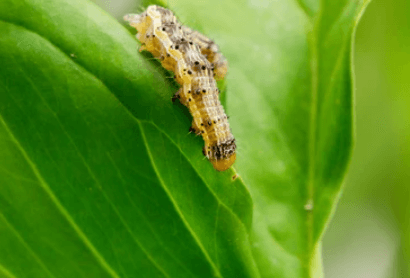Helicoverpa NPV is a specific pathogenic microorganism for cotton bollworm. It can be used on cotton, sorghum, maize, tobacco, tomatoes, and other crops to control lepidopteran pests such as cotton bollworm and smut. It has favorable application prospects.
Lifeasible offers various effective solutions for Helicoverpa NPV Insecticide development by utilizing various advanced technologies. We aim to develop biopesticides that are more potent, safer for the environment, and more environmentally friendly.

Helicoverpa NPV is an effective biopesticide for cotton bollworm damage that overcomes the host's immune system and establishes systemic infection.
Helicoverpa NPV is spread through insects' mouths or wounds. The virus that enters insects through the mouth is digested by gastric juices. Free rod-shaped virus particles enter the insects' cavities and proliferate in the cells, destroying the insect cell structure and then invade healthy cells until the insects are killed. This type of virus can only proliferate in living host cells. After the death of the diseased insect, it can re-infect other insects through feces and dead insects or transmit to insect offspring through eggs, making the virus disease epidemic in the pest population, thus controlling pest damage.

Lifeasible is a comprehensive plant research company that aims to provide effective solutions for biopesticide development. We aim to significantly improve the insecticidal efficacy and range of action of biopesticides. If you are interested in us, please feel free to contact us.
Lifeasible has established a one-stop service platform for plants. In addition to obtaining customized solutions for plant genetic engineering, customers can also conduct follow-up analysis and research on plants through our analysis platform. The analytical services we provide include but are not limited to the following:
Get Latest Lifeasible News and Updates Directly to Your Inbox
Adaptive Evolutionary Mechanism of Plants
February 28, 2025
Unraveling Cotton Development: Insights from Multi-Omics Studies
February 27, 2025